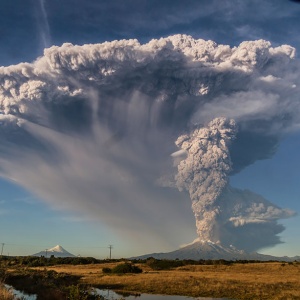
Using volcanic rock dust as a fertiliser on farms could offset around one tenth of global greenhouse gas emissions, according to preliminary estimates.
The authors of the study, including climate scientist James Hansen, suggest that applying crushed silicate rocks to cropland would absorb carbon from the atmosphere through enhanced weathering, as well as increasing crop yields and potentially reducing the need for fertilisers and pesticides.
However, it would take a lot of energy to crush the rocks, possibly causing emissions equivalent to 30% of the carbon absorbed by this method. It’s also not clear what effect the crushed rock could have on soils and waterways.
Read the full article here. See also the FCRN summary Potentially dangerous consequences for biodiversity of geoengineering and the Foodsource resource What would be a safe upper limit to GHG emissions and where might reductions come from?







Post a new comment »